Jeffrey Yuwono
Posts: 30 +2
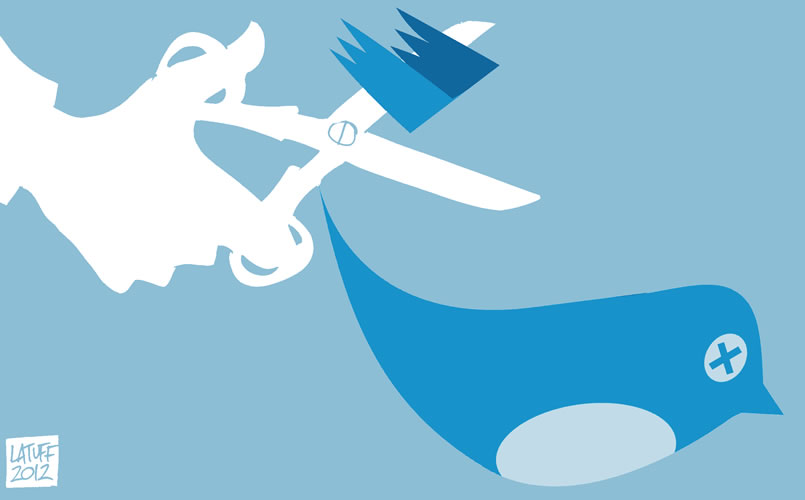
When people think about ranking social networks, it's usually Facebook #1 and Twitter #2. Well, there's a new #2 in town and that's Instagram. With 300 million monthly active users it recently supplanted and surpassed Twitter's 284 million active user base.
Twitter was a compelling solution to a problem few understood. I'm not a big Twitter user by any means, but I've kept close tabs on it ever since its debut on SXSW, and my own understanding of Twitter has evolved a lot over the years.
Like most, I didn't get Twitter the first time. It felt like a feature Facebook already had in status updates. Moreover, did I really want to know that people were doing on a real-time basis? Having lunch or going to the gym or feeling sad?
I soon realized it was a precise way of getting updates of only the people you're interested in, which is (was) different to Facebook's algorithmic approach of getting updates from all your friends -- who you may not actually be interested in following in real time. That was my first take on Twitter's purpose.
As it turns out, few have the desire to publicly broadcast what they're doing. Only a small percentage produce the vast majority of Twitter's content. So if that's all Twitter is good for, Twitter would've been niche. An efficient distribution tool for people who like to talk about themselves and are interesting enough to get others to care. Not small, but not all that disruptive.
But Twitter is more than that.
Talking to my younger relatives about how they used Twitter back in 2009 opened my eyes. All their tweets were private and they used Twitter like an asymmetric group chat. Asymmetric because it's opt-in (versus in chat apps, where everything posted to a group is seen by all its members). They used Twitter to semi-privately talk to their friends throughout the day.
Fast forward to 2014 and those formerly hardcore users have abandoned Twitter. Instead, they use chat apps like Whatsapp and LINE for private conversation, and prefer Instagram for asymmetric conversation. I'll come back to the latter in a bit.
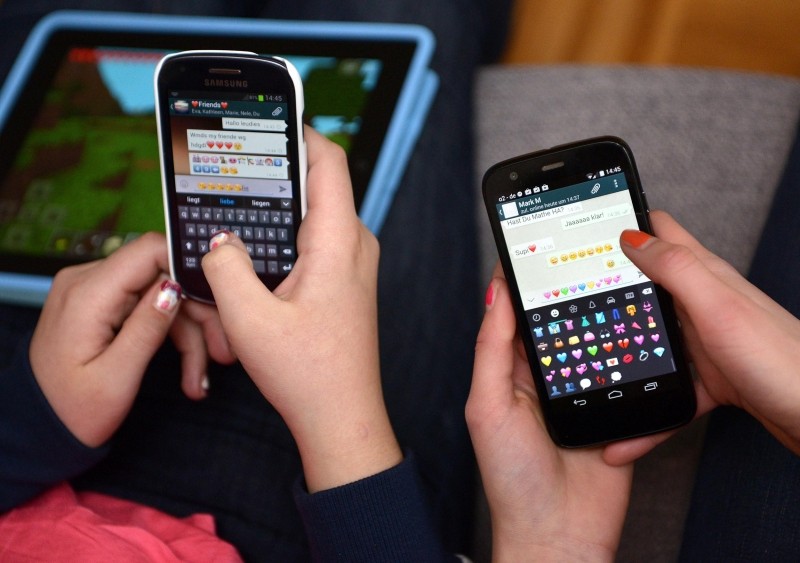
The third stage of Twitter is probably how most use it: interest-based news, updates and opinions. Like a town hall for what you're interested in.
Anyone can talk, but there are only a handful of people on the podium with access to the microphone; these are the giants with all of the followers. The rest of us are the crowd.
Only giants talk to one another -- what insiders affectionately call the twittersphere -- while we merely listen in on and nod with approval or hiss in disapproval.

Even here, Twitter has missed opportunities. If Twitter is a town hall, for newcomers it's hard to find the hall you're actually interested in. Twitter has long tried to solve this onboarding issue, but the problem is fundamental: on Twitter, people are the unit of content.
I care about what Marc Andreessen has to say about technology and business; I don't care at all what he thinks about the Hunger Games. Yet I can't expect to get only one kind of content from Marc and not anything else when what I've committed to is following him and not the actual interest.
Experienced Twitter users understand this, and so have evolved their tweeting habits to reflect what kind of a brand they want to be on the service. Marc, for example, doesn't talk about movies on Twitter. Unfortunately, it's not easy for a newcomer to deduce who posts only relevant content and who doesn't.
If Twitter started from scratch, I wonder if instead of people, Twitter would've focused on interests as the fundamental unit of content. Onboarding would be about following your interests, and the service would be about helping you find the best opinions for that interest.
But now I'm describing Reddit, and I'm not sure if Twitter should be that either.
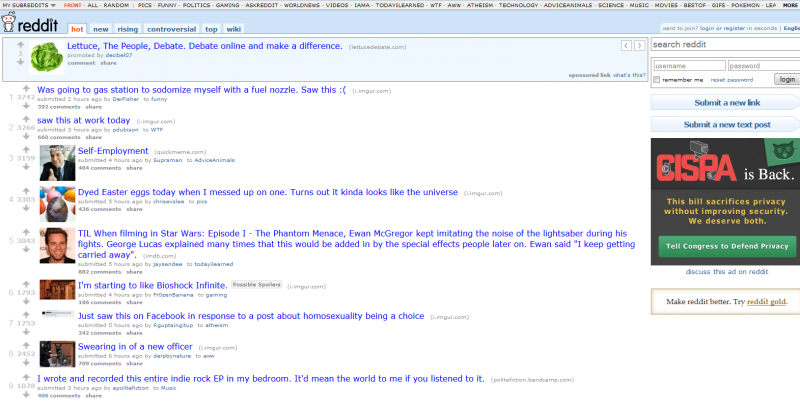
I suppose Twitter is the overlap between people and interests; where you want to follow the most influential in your interest groups to hear what they have to say.
That's my current understanding of Twitter. Twitter is not for conversation, not for socializing and not for research. It's for getting updates about what you're interested in by following the giants of those interests, and then listening to those giants talk to one another.
This brings us back to Instagram. Twitter and Instagram are direct competitors, but despite the similarities, that Instagram is now used by more people than Twitter seems like an inevitability.
Instagram's appeal is more immediate and more universal. It's easier to create and find good content on Instagram, better for conversations and great to use with friends.
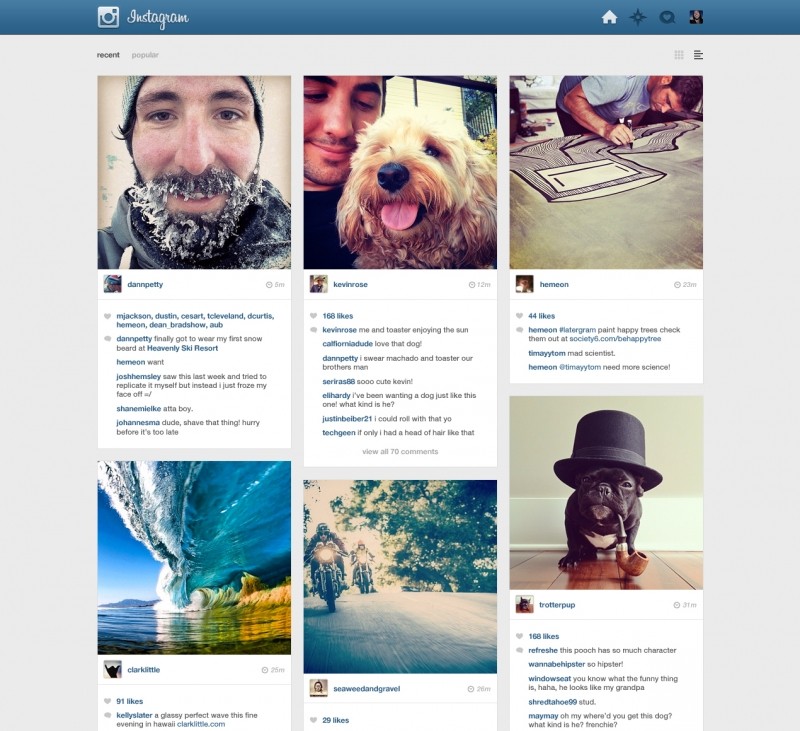
One big reason Instagram is so much more accessible than Twitter is that images have a more immediate impact than text. Seeing is easier than reading; an image has inherent value, whereas text has to convey more than just words. Even there, sharing beautiful photos and adding filters on Instagram is extremely easy; whereas on Twitter, you have nothing but your wits and a mere 140 characters to demonstrate it.
(We are generalizing of course -- posting nice photos on Twitter today is just as easy -- this is more about how people think of these two services than actual mechanics.)
Expectations for appropriate posting behavior is also different. On Instagram, the typical user would share two or three photos a day; most of them significant in some way. On Twitter, many would tweet dozens of times a day; many of a "throw away" kind. The focused, higher quality nature of Instagram is easier to digest.
Instagram is also a better social tool. All comments about an image are recorded in one place so they're easy for people to follow and add voice to. On Twitter, conversation is fractured by who you follow. You can only see part of the debate, and only a fraction of that part will hear you back.
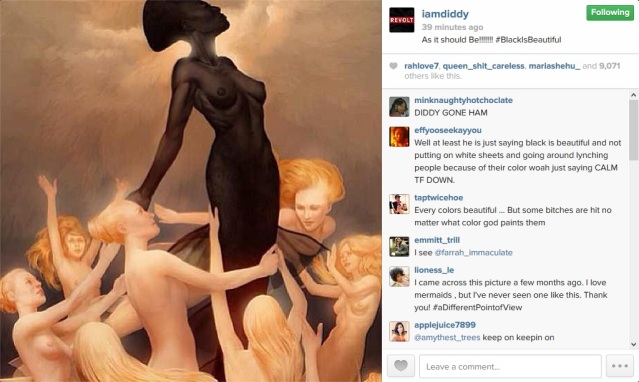
Are you even supposed to follow friends on Twitter? As a matter of fact, I don't follow any of my friends on Twitter. On Instagram, following friends is an excellent and simple jumping off point.
So the time where someone thinks "this is useful" is much sooner on Instagram.
And as people get more comfortable with Instagram, they discover they can also follow those who share similar interests or have influential opinions; just as they can on Twitter. Except on Twitter, most people never get there.
Of course, Twitter has its own advantages. For example, I provide my Twitter account as a contact for my writing, and not Instagram. It's obvious why: my column is about technology, entrepreneurship and gadgets; interests that rely more on words than images, so Twitter is a better fit.
For everything else -- posting and finding good content, participating in conversations, socializing with friends, engaging on interests driven more by photos than by text -- Instagram is better. And the things Instagram is better at are bigger.
Masthead image: Latuff Cartoons
https://www.techspot.com/news/59136-cornerplay-twitter-evolution-why-instagram-better.html